Archive
02 March 2023
Accreditation for new Master’s Degree in Quantum Information Science & Technology
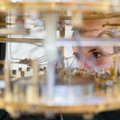
On 16 February the Netherlands-Flemish Accreditation Organisation (NVAO) accredited the Master's degree in Quantum Information Science & Technology (QIST). With this accreditation, the new programme can officially kick off in September 2023. The Master’s programme is a collaboration between TU Delft (AS, EEMCS and QuTech) and Leiden University.
28 February 2023
TU Delft presents the eight best Climate Action & Energy Papers

Record temperatures, floodings and melting sea ice: radical weather events are becoming more frequent and have a devastating effect on our planet and our lives. By accelerating the energy transition and climate action TU Delft, together with its partners, tries to prevent climate change and contain its consequences. With the election of the Best Climate & Energy Paper, TU Delft is highlighting a number of large and small innovations that contribute to this.
23 February 2023
Stephanie Wehner receives NWO Vici grant for innovative research line
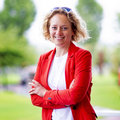
23 February 2023
Kofi Makinwa recognized as Top Contributor at "Chip Olympics"

13 February 2023
Research for responsible AI in the military domain: REAIM2023

Delft AI and ethics researchers lead academic forum of REAIM conference 15 and 16 February.
31 January 2023
ERC for AI that can judge human social intentions in complex situations

27 January 2023
NWO-XS Grant to unlock the secrets of dusty galaxies
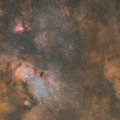
17 January 2023
New method revolutionises network analysis

It shows the shortest path even when 90% of the network is hidden.
13 January 2023
A plant-powered camera and better AI to detect atmospheric threats

At the very end of last year, NWO Open Technology Programme (OTP) announced two new grants in the fields of environmental monitoring and atmospheric threat detection. Both projects are part the department of Microelectronics, and both will help scientists and society better understand our environment – to limit or otherwise mitigate the consequences of climate change.
10 January 2023
TU Delft in ROBUST with 3 new ICAI labs and AI clinics for SMEs thanks to NWO funding of 25 million euro

Today, the NWO announced that it is awarding the ROBUST programme 25 million euros. ROBUST, an initiative from the Innovation Centre for Artificial Intelligence (ICAI), is a collaboration of 51 partners from industry, government, and the knowledge sector, including TU Delft. ROBUST's total budget is over 87 million euros, and with the new impetus from NWO, 17 labs and 170 PhD students will be added in 10 years.
03 January 2023
Mathematical research into the network of Evolutionary Biology
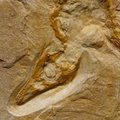
20 December 2022
Computer gives people with depression symptoms insight into their thinking patterns
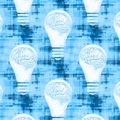
Our thoughts greatly determine how we feel and behave. Thus, gaining insight into certain thought patterns is an important part of preventing and treating depression. TU Delft researcher Franziska Burger investigated how AI can support people with symptoms of depression.
08 December 2022
“No other technology has changed the world as quickly and intensely as web- and data-driven intelligent systems (AI)”
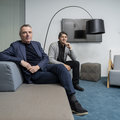
07 December 2022
Aad van der Vaart to become President of the International Society for Bayesian Analysis
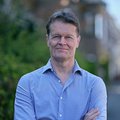
Aad van der Vaart has been elected President Elect of the International Society for Bayesian Analysis (ISBA). His term will start on January 1, 2023, and a year later he will take over the presidency of the Society.
02 December 2022
Piet van Mieghem has been elevated to IEEE Fellow

This week Professor Piet van Mieghem has been elevated to IEEE Fellow, in recognition of his contributions to quality of service-based routing and network modeling.
16 November 2022
A navigation system with 10 centimetres accuracy
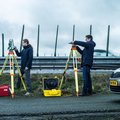
Researchers of Delft University of Technology, Vrije Universiteit Amsterdam and VSL have developed an alternative positioning system that is more robust and accurate than GPS, especially in urban settings. The working prototype that demonstrated this new mobile network infrastructure achieved an accuracy of 10 centimeter.
16 November 2022
DEWIS award for Anna Lukina
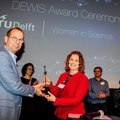
Anna Lukina, assistant professor from the faculty of EEMCS, was awarded the annual DEWIS Award – presented personally by Rob Mudde (Vice-Rector Magnificus) during the DEWIS Symposium on November 14.
02 November 2022
AIT and TU Delft launch international doctoral programme on sustainable transformation energy system using AI
06 October 2022
How Computational Science can contribute to a sustainable future
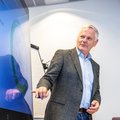
26 September 2022
Four terminal perovskite-silicon PV tandem devices hit 30% efficiency
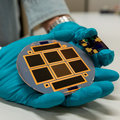
TNO, TU Eindhoven, imec and TU Delft – partners in Solliance – joined forces to further push the conversion efficiency of tandem solar cells to beyond the limits of today’s commercial photovoltaic (PV) modules. For the first time, four-terminal perovskite/silicon tandem devices with certified top cell pass the barrier of 30%. Such high efficiency enables more power per square meters and less cost per kWh.
05 September 2022
Far-infrared detector KID reaches highest possible sensitivity
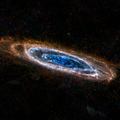
In 2004, SRON decided to invest in the development of Kinetic Inductance Detectors (KIDs). Now researchers from SRON and TU Delft have achieved the highest possible sensitivity, comparable to feeling the warmth of a candle on the Moon from Earth. Publication on September 6th in Astronomy & Astrophysics.
05 September 2022
Best Professor Award received by Kees Vuik
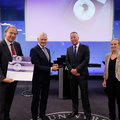
On Monday 5 September, Kees Vuik, Professor Numerical Analysis at the Faculty of Electrical Engineering, Mathematics and Computer Science (EEMCS) received the Best Professor Award 2022. The festive ceremony preceded the Opening of the Academic Year 2022-2023. Delft University Fund awards the prestigious Professor of Excellence Award since 1994.
13 July 2022
Tackling the Electricity Grid Congestions in Amsterdam
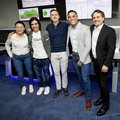
Our energy network, from high voltage to low voltage, is becoming increasingly complex. Economic and demographic growth requires more and more connections, while the energy transition makes those connections more demanding: houses need more electricity, but sometimes also deliver current back with solar panels. The result is an energy network that threatens to become completely congested in some places. Take the Buiksloterham neighbourhood in Amsterdam, for example. There, the medium-voltage network can no longer cope with growth, while local industry wants to expand and homes want to become more sustainable.
05 July 2022
A Vidi grant for the democratization of cloud application development

The cloud – the online realm of our digital world – is becoming bigger and more important by the day. Allowing programmers and developers to work with that cloud is therefore also increasingly important. Yet, even though cloud programming has been around for a good 15 years, it has remained relatively inaccessible. Asterios Katsifodimos aims to change that: in the next five years he and his team want to democratize the development of scalable and consistent cloud applications. For this effort he has received a prestigious Vidi grant from NWO.
22 June 2022
Researchers invent Bluetooth that keeps on working even if power runs out
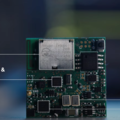
Internet of Things now possible without batteries or continuous power, thanks to the invention of 'intermittently-powered bluetooth' FreeBie
08 June 2022
TU Delft's Control Room of the Future starts collaboration with Technolution and Phase to Phase

The brand new research facility, where the digitalized electricity grid of the future will be shaped and formed, starts a new collaboration. Technolution, a technical consultancy firm from Gouda, the Netherlands, and their subsidiary Phase to Phase, invests € 525.000, in both hardware and software to the Control Room in the Future technology centre. Together, researchers and engineers will work on developing a new power grid that is more intelligent, resilient and cyber secure.
08 June 2022
Penguin Lab’s super computer is officially opened
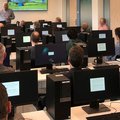
Take a look at the history of the ‘supercomputer’, you will see that it not just means a ‘very fast computer’, but in fact mostly refers to computers in which multiple state-of-the-art processors run parallel, thus bundling their calculative power. The brand new Penguin Lab at EEMCS offers such a supercomputer – but with a twist: a classroom setting.
08 June 2022
Energy transition at the heart of TU Delft's education programme
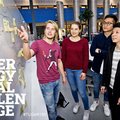
On Thursday 9 June, the TU Delft campus will be buzzing like never before. On that day, students will be presenting their ideas on how to accelerate the energy transition. Over the past six months, more than 15,000 TU Delft students have followed a course on energy transition. This has resulted in a large number of ideas and prototypes that can be seen on 9 June during the Energy Challenge Event, which is part of TU Delft's anniversary year.
16 May 2022
TU Delft's Control Room of the Future makes power grid digitally resilient

The increased digitalisation of the power grid comes with its own set of cyber threats and risks. In TU Delft’s Control Room of the Future (CRoF) the power grid gets put through its paces. This remarkable research facility offers both industry and academics unique opportunities to research, develop and test the integration of new energy management technologies into the smart grid.
03 May 2022
Gravity grant awarded to research on brain interactions

To understand how the brain works, we need to understand how each part, from neuron to brain region, interacts with the rest of the brain and with the outside world. Thanks to a grant of 21.9 million euros from the Gravity program, from the Ministry of Education, Culture and Science, a national consortium can now conduct further research into this.
26 April 2022
Royal Honours for Catholijn Jonker
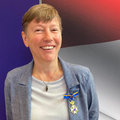
Today, Professor Catholijn Jonker has received a Royal Distinction. The so-called ‘ribbon’ is a reward for someone who has done something special for Dutch society. Jonker is appointed Knight of the Order of the Lion of the Netherlands. She receives the recognition because of the special way in which she applies her expertise across her many roles – as an enthusiastic and passionate connector, a researcher, and a teacher and supervisor. She does so both nationally and internationally, working towards embedding artificial intelligence in the social environment.
14 April 2022
National Growth Fund for better cancer treatment with AI: Oncode-PACT*

The National Growth Fund invests 325 million euro in the Oncode-PACT* plan to accelerate the preclinical development process of cancer drugs. The consortium, which also includes Professor of Bioinformatics Marcel Reinders, will use this funding to fast develop valuable candidate cancer drugs as well as new methods to get these new drugs to the patients for whom they are most effective. This will improve the quality of life of cancer patients while strengthening the future economic earning capacity of the Netherlands. Within the consortium, an important role is reserved for the enabling power of Artificial Intelligence (AI).
12 April 2022
Two Veni's for AI against power outages and a sustainable Internet-of-Things
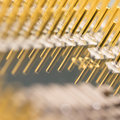
11 April 2022
Jasper Peterich | New director Delft University Fund and Alumni Relations

The energy transition will be felt most keenly in residential areas, where there are major challenges. . At The Green Village – the field lab for sustainable innovation on the TU Delft Campus – a unique project to accelerate the energy transition in the built environment will start on Friday 14 January: the 24/7 Energy Lab.
07 April 2022
In Memoriam - Eelco Visser (1966 - 2022)
It is with great sadness that we announce the untimely passing of our dear colleague and friend Eelco Visser on Tuesday 5 April 2022. Eelco was professor and head of the Programming Languages Group (faculty EWI) at TU Delft and was an expert in the field of programming language design. He was a highly valued member of the management team of the Software Technology department. Eelco was tenacious, well-informed, and always driven by content. A researcher in heart and soul who will be greatly missed.
17 March 2022
An ERC for a 3D vision on the universe’s structure
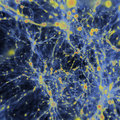
Akira Endo has received an ERC Consolidator grant for his TIFUUN project, which will create 3D maps of vast volumes of the universe. These will cover both distant places and times – more than 10 billion years to be exact! The better imagery that Akira Endo will generate could revolutionize our insights into the history of galaxies, and the formation and evolution of the so-called ‘cosmic web’.
15 March 2022
Documentary on solar energy expert Miro Zeman gains film award

It isn’t often that a scientist wins a prestigious film award, but it happened last week to Miro Zeman, a solar energy expert at TU Delft. In his mini-documentary on energy transition, he elaborates on his scientific dream and how he is pursuing it at the brand new ESP Lab. The film was awarded a Green Heron during the Evening of the Corporate Film – The Golden Herons are awarded annually to the best commissioned films. The Green Heron is bestowed specifically on young film makers.
15 March 2022
A Vici grant for the handling of noise
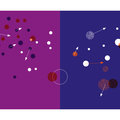
25 February 2022
Delft scientists present “green” series of children's lectures
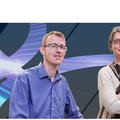
We generate more and more electricity from solar panels and windmills, but what if there is no wind and the sun is not shining? Will you still be able to charge your phone? This is one of the many questions that will be addressed in a brand new series of lectures by the MuseumJeugdUniversiteit. For this "green" series – made especially for children between the ages of 8 and 12 – this long-term collaboration between MuseumJeugdUniversteit and Science Centre Delft travels to the TU Delft campus, which celebrates its 180th anniversary this year.
21 February 2022
TU Delft and HyET Solar strengthen their partnership – in lightweight, flexible and ubiquitous thin-film solar foil
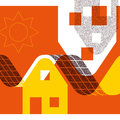
Solar foil represents the future. It can be applied in countless and unique ways – all the way from integrating it into traditional roof tiles through to creating new large-scale solar parks that reduce the price of our electricity. By signing a new four-year research contract, TU Delft and HyET Solar have sped up the introduction of the next generation of solar foil, bringing this vision of the future a significant step closer.